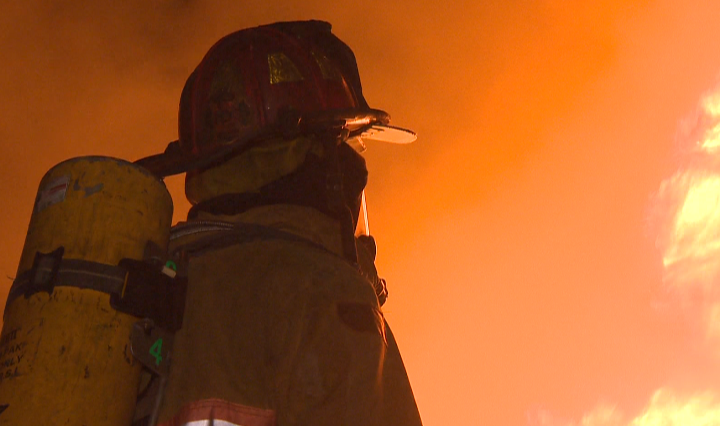REGINA – Saskatchewan firefighters are asking the provincial government to make it easier for them to get treatment for post-traumatic stress disorder. Kirby Benning, president of the Saskatchewan Professional Firefighters Association, says it takes a long time to be diagnosed and the province could simplify how firefighters get help through workers’ compensation.

Benning says it took more than four stressful months for one firefighter to finally get approved.
“That’s a lot of things for him to worry about with his family when he’s missing some work, when he’s trying to get treatments and trying to get the right type of treatments,” Benning said Tuesday at the legislature. “Anything we can do to make that process faster, I think we should do.”
READ MORE: Government needs to provide mental health education to soldiers: Doucette
Labour Minister Don Morgan said psychological issues are covered by workers’ compensation, but post-traumatic stress disorder is not. He said firefighters would like it to be presumed that PTSD is work-related instead of having to prove it.
“It’s something that we should have discussions on,” said Morgan.
“It’s a broader issue than just firefighters. It would affect emergency medical workers. It would affect police officers and a number of other industries that would be there, so that’s what we’ve asked the workers’ compensation board to have a look at in the broader context.”
The Workers’ Compensation Act review committee is collecting written submissions and holding public hearings. The government says it expects a report in the middle of next year.
READ MORE: Edmonton-area paramedic creating mental health fund for first responders
Benning has been a firefighter for 20 years and said it’s obvious that what firefighters or emergency workers have seen on the job is behind a PTSD diagnosis.
Getting them to talk about it is hard, he said.
“It’s a tough nut to crack, getting guys like us, and girls as well, to open up. You know, it’s an atmosphere of being tough, and so trying to change that when there is an issue is a little bit of work. That’s why we need all the help we can get in that aspect.”

Comments